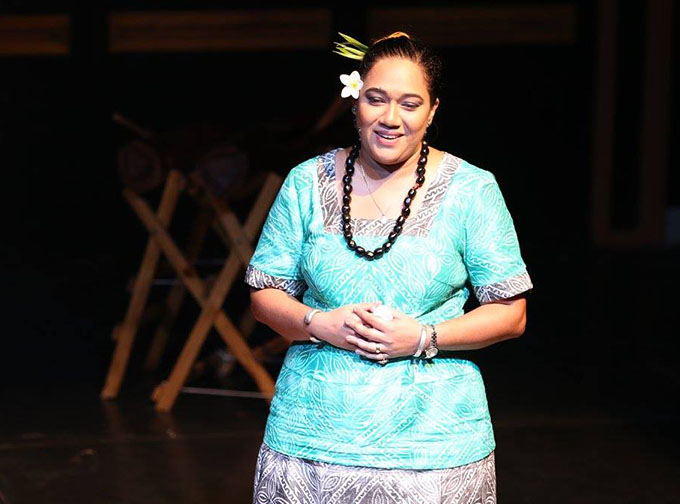
By RNZ Pacific
Indigenous Pacific knowledge should inform the science to save the world’s oceans.
That was the consensus among Pacific ocean scientists and other regional stakeholders who gathered in New Caledonia recently for the first global workshop aimed at arresting the decline of the world’s oceans.
RNZ’s Dominic Godfrey reports:
LISTEN: Indigenous Pacific knowledge to help save the ocean
AUDIO TRANSCRIPT
The United Nations’ World Ocean Assessment Report recently confirmed the seas are in a bad state, with increased temperatures and acidity negatively impacting fish stocks and biodiversity.
The Pacific Community’s ocean affairs manager Jens Kruger says the UN has called for a concerted effort over the coming decade to reverse the decline.
“And we are kicking off a series of regional consultations. And we in the Pacific, we are the very first of eight or ten regional consultations that are going to happen.”
The Noumea gathering launched the development phase of the Pacific’s science action plan to feed into a global summit in March.
A broad swathe of Pacific academia, indigenous and traditional knowledge holders, youth, government and NGOs were there.
But there were concerns the Pacific’s voice would be lost or diluted.
The University of the South Pacific’s director at the Oceania Centre, Frances Koya-Vaka’uta, says Pacific people need to see themselves reflected in official language for it to resonate properly and this includes plans for the coming “Decade of the Ocean“.
“Because it’s so critical to our very survival and livelihoods, it has to be in a language our people can connect with. That doesn’t necessarily mean having to include Pacific words or language but seeing that you are represented and that your voices are reflected in the generic language and representation.”
Others spoke of the need for scientific solutions to be complemented by traditional indigenous knowledge which has a foundation in millennia of practical science.
The oceans officer from Samoa’s Foreign Office, Matilda Bartley, says she wanted to see improved reporting on UN Sustainable Development Goal 14 on ocean conservation.
“And also how ocean science was able to incorporate the humanities in the cross-cutting issues that have been raised.”
Various themes were established to link working groups, looking at the ocean as clean, healthy and resilient, predictable, safe, sustainable and productive, and transparent and accessible.
But it was indigenous knowledge which most strongly tied the science across the groups.
A member of the UN’s executive planning group for the “Decade of the Ocean”, the Australian scientific research body’s CSIRO Karen Evans says it’s important to bring coherence of message across these groups.
“The Pacific and Pacific Community can bring something quite unique that no other region can bring to the decade; that culture is inherently important and should be a consistent thread through everything that is done through the decade, particularly for the Pacific region.”
Dr Evans says there is a real energy and commitment from the Pacific to be involved in setting the Ocean Decade’s agenda.
It has endorsement at the highest level.
The head of the UN’s Intergovernmental Oceanographic Commission, Vladimir Ryabinin, says it’s important the Pacific’s indigenous knowledge helps establish conservation science.
“Traditional knowledge for us would be the way to gauge the usefulness of scientific solutions and then also transform the solutions into something that is useful, really useful.”
Dr Kruger from the Pacific Community says the Noumea workshop was a great start in establishing the priorities for the coming decade but it’s important to get more people engaged.
“We’ve got a lot of sectors that have a great interest in the decade so when we go down to the national level we might broaden the discussions there, for example, I think we’ve had a lot of voices here from fisheries. The ocean provides a lot of resources besides fish so those are also something that we need to look at at the national level.”
Jens Kruger says it’s important that Pacific island countries, with their special links to the ocean, help create the science we need for the oceans we want.
- This article is published under the Pacific Media Centre’s content partnership with Radio New Zealand












































